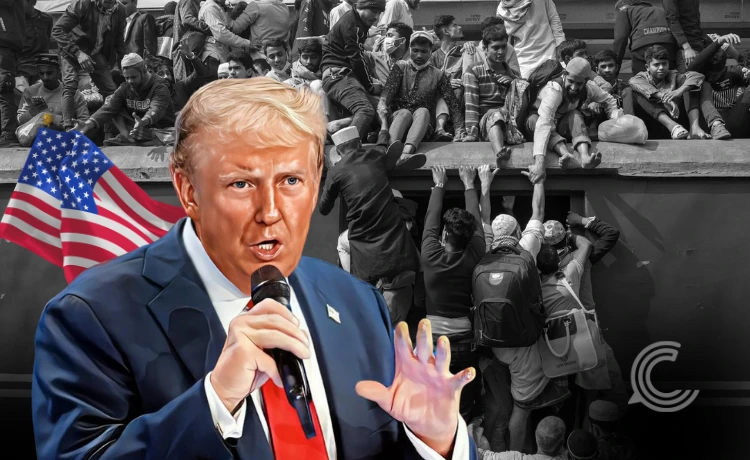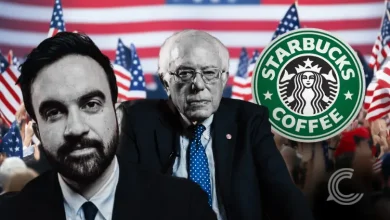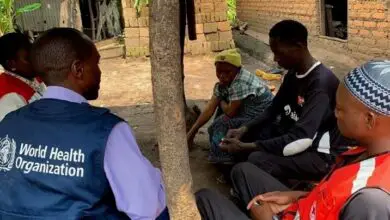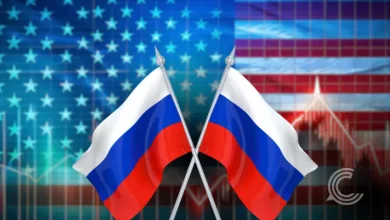Trump Proposes Permanent Pause on Migration From Poor Countries

Key Points:
- President Donald Trump vowed to “permanently pause migration” from what he termed “all Third World Countries” to allow the U.S. system to “fully recover
- The proposal lacks specific definitions for what constitutes a “poor nation” or how it would be legally and logistically implemented by U.S. agencies.
- The decision is part of a larger plan that includes mass deportations, denaturalizing certain migrants, and reviewing all refugee cases admitted under the previous administration
President Donald Trump has ignited a fresh firestorm in the global debate on migration, vowing to implement a “permanently pause” on immigration from poor nations if he takes office.
The aggressive declaration, made in a blistering social media screed, signals a major escalation of his already stringent immigration policy platform and has sent immediate shockwaves through diplomatic and humanitarian circles.
The Thanksgiving Night Vow
The promise to halt immigration from poor nations was posted to social media late on Thanksgiving night, a timing that highlights its political and cultural provocation. Trump argued that the current policy has eroded national progress and that he would move to “terminate ‘millions’ of admissions” under the previous administration.
He explicitly stated his intention to “permanently pause migration from all Third World Countries to allow the US system to fully recover” and to “remove anyone who is not a net asset to the United States, or is incapable of loving our Country, reported by Business Standard.
This new plank significantly broadens his already drastic policy proposals, which include the “largest deportation in American history,” potentially affecting 15 to 20 million people, and a massive scale-back of refugee admissions, reported by Cato at Liberty Blog.
Policy Vague, Impact Potentially Vast
One of the primary immediate concerns surrounding the proposal is its lack of definition. The term “Third World Countries” is an ill-defined, archaic term typically used to refer to poorer, or developing, nations.
The question is which nations would fall under this umbrella. Would the policy target low-income countries in sub-Saharan Africa? Would it include nations in Central America and the Caribbean, such as Jamaica, which are significant sources of both legal and irregular immigration from poor nations? Without a clear legal or economic metric, such as the World Bank’s low-income classification, the policy’s scope remains dangerously vague, potentially leaving immigration officials with broad, unchecked discretion.
Past actions from the first Trump administration included significant cuts to refugee programs, with the annual ceiling for refugee admissions reaching an all-time low of 18,000 in Fiscal Year 2020.7 This new vow suggests a move toward an outright, indefinite ban on certain national groups.
Humanitarian and Economic Reactions
The proposal drew swift and intense condemnation from humanitarian and immigrant rights organizations. Advocates contended that such a policy is cruel, unconstitutional, and violates international human rights laws, especially since many migrants are fleeing legitimate threats of violence, persecution, and civil conflict in their home countries.
Asia Russell, the executive director of Health GAP, a nonprofit working on access to HIV treatment in developing countries, stated in response to earlier policy actions that such sweeping cuts are “cruel and deadly,” a sentiment likely echoed by this latest proposal. Critics argue that the proposed “permanent pause” ignores the root causes of displacement, such as political instability and climate change, which often drive immigration from poor nations, according to Politico Pro.
Economically, experts also raised red flags. Many sectors of the U.S. economy, from agriculture to healthcare and hospitality, rely heavily on immigrant labor, including that from developing nations. A sudden, permanent cessation of immigration could lead to severe labor shortages, driving up labor costs and inflation, and potentially damaging economic growth. For example, reports have noted a struggle to attract immigrant physicians, a crucial component of the healthcare system.
Echoes of Historical Precedent
While dramatic, the focus on economic status in immigration from poor nations is not entirely unprecedented in U.S. history. As UC Berkeley Professor Hidetaka Hirota has noted, early forms of restriction were often against “impoverished people, or ‘paupers,'” based on the economic consideration that the community should not spend its treasury on the support of outsiders, Berkeley News reported.
However, the modern scale and the rhetoric of exclusion attached to this particular policy promise represent a significant departure from the post-1965 immigration framework. As the proposal moves from political rhetoric to potential policy, the legal community is preparing for significant court battles over its constitutionality and adherence to established asylum and immigration statutes.



